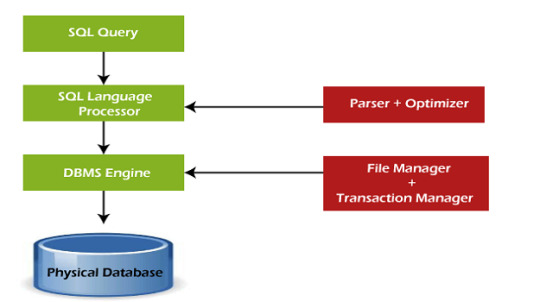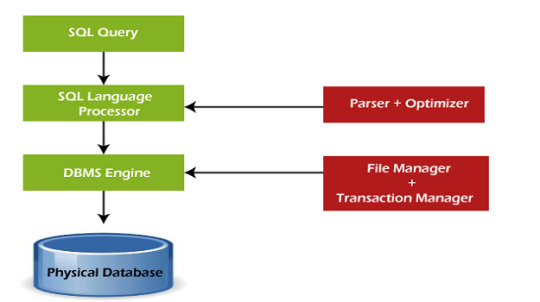#sql beginners
Explore tagged Tumblr posts
Text
BigQuery: Definition, Meaning, Uses, Examples, History, and More
Explore a comprehensive dictionary-style guide to BigQuery—its definition, pronunciation, synonyms, history, examples, grammar, FAQs, and real-world applications in cloud computing and data analytics. BigQuery Pronunciation: /ˈbɪɡˌkwɪəri/Syllables: Big·Que·ryPart of Speech: NounPlural: BigQueriesCapitalization: Always capitalized (Proper noun)Field of Usage: Computing, Data Science, Cloud…
#BigQuery#BigQuery antonyms#BigQuery article#BigQuery data warehouse#BigQuery definition#BigQuery etymology#BigQuery examples#BigQuery FAQ#BigQuery for beginners#BigQuery Google Cloud#BigQuery grammar#BigQuery in sentences#BigQuery kids definition#BigQuery machine learning#BigQuery meaning#BigQuery medical definition#BigQuery pricing#BigQuery pronunciation#BigQuery rhymes#BigQuery SQL#BigQuery synonyms#BigQuery usage#BigQuery use cases#Google BigQuery#history of BigQuery#what is BigQuery
0 notes
Text

📊 Master Tableau – Turn Data into Decisions! 🚀 Join our Tableau Training Program and become a Data Visualization Pro trusted by top companies.
✅ 100% Practical Training ✅ Real-Time Dashboards & Case Studies ✅ Suitable for Beginners & Professionals ✅ Job Assistance + Certification ✅ Online & Offline Batches Available
#tableau#manufacturers#sqlserver#sql#database#sqltraining#powerbi#excel#datavisualization#sqlite#peter sqloint#beginners
1 note
·
View note
Text
SQL for Beginners: Your Gateway to Data Management

Have you ever wondered how websites recall user information, businesses monitor sales patterns, or applications retrieve your login information in seconds? The answer lies in Learning SQL for Beginners, the basic language that powers databases globally. Whether you are an aspiring data analyst, a software developer, or just a database enthusiast, learning SQL can be a game-changer.
What is SQL?
SQL, or Structured Query Language, is a programming language used to communicate with and manipulate databases. SQL is a fundamental part of database management systems since it enables users to perform a number of operations on data in relational databases. SQL databases exist in various types, such as MySQL, PostgreSQL, SQL Server, and SQLite, with differences in features and functionality. These databases offer users the functionality to create, manage, and query data efficiently.
Why Is SQL Essential?
The following are the reasons why understanding SQL is crucial:
Creating New Databases, Tables, and Views: SQL allows you to create and organize data effectively by creating new databases, tables, and views. This first step organizes your data, making it easier to manage and retrieve information whenever you want.
Inserting Records in a Database: In case you have data to store, SQL combines statements like INSERT that allow you to add new records to your tables. This helps in making your database up-to-date with new data.
Updating Records in a Database: SQL provides the ability to update existing records with commands like UPDATE so that your database remains accurate and helpful over time.
Deleting Records from a Database: Sometimes, certain records must be removed in order to keep a neat database. SQL’s DELETE command provides an efficient way of removing unwanted entries from your tables, thereby enhancing data integrity.
Retrieving Data from a Database: The biggest strength of SQL lies in its ability to retrieve data precisely. With the SELECT statement, you can request specific details from your database to promote analysis and reporting.
Applications of SQL
SQL is not just a technical skill but has a wide range of applications in various fields. Below is how SQL is utilized in the real world:
Data Analysis: Organizations utilize SQL to analyze large data, pull out information, and generate reports. Analysts and data scientists can use SQL to query data efficiently, enabling well-informed decision-making that results in business growth.
Web Development: SQL is used by many web applications as a means of communicating with back-end databases. From storing user information to managing content, SQL helps developers make their applications operate smoothly and retrieve data quickly whenever needed.
Customer Relationship Management (CRM): SQL is utilized in CRM applications to store and maintain customer data, interactions, and purchase history. Using SQL, organizations are able to analyze customer behavior, which helps in developing improved relationships.
Healthcare & Medical Records: SQL databases find application in the healthcare sector through hospitals and clinics to maintain patient records, track prescriptions, and manage appointments securely and efficiently. This helps in handling sensitive information in a proper way while enabling healthcare professionals to access important information quickly.
E-commerce & Retail: SQL powers online shopping sites with product inventories, order processing from customers, and personalized recommendations based on user behavior. Such capabilities allow e-commerce businesses to enhance customer experiences and ultimately increase sales.
Explore UniAthena’s SQL Beginner to Advanced Course
This SQL course provides you with an overview of database fundamentals like data, fields, records, and databases. It also covers basic DBMS and RDBMS concepts and the key role of SQL in database management, showcasing the significant role played by it in database management efficiently.
You will also learn about SQL constraints, aggregate functions, join types, stored procedures, views, and indexes. Through the blend of theory and practice, you will become skilled in using the application of functions with queries, database management, and effective handling and manipulation of data with the diverse use of SQL elements.
With a learning duration of just 1–2 weeks, this self-paced course can fit into your schedule. And upon completion, you will get yourself a chance to gain a Blockchain-verified certification, which adds credibility to your skills. If you are looking for the Best Free Online Short Course, this is your chance to upskill. Enroll now.
#learning sql for beginners#sql intermediate course#sql beginner to advanced#Online free learning#Best free Online short courses
0 notes
Text
SQL Tutorial for Beginners: Essential Concepts, Queries, and Best Practices

Are you new to databases and wondering how to manage data efficiently? This SQL Tutorial for Beginners will help you easily understand the basics of SQL.
What is SQL?
SQL (Structured Query Language) is a language used to interact with databases. It helps store, retrieve, and manage data efficiently. Many companies use SQL to handle their data, making it a valuable skill to learn.
Why Should You Learn SQL?
Easy to Learn – SQL has a simple syntax, making it beginner-friendly.
High Demand – Many businesses require SQL skills for data analysis and management.
Works with Many Databases – SQL is used in MySQL, PostgreSQL, and other popular databases.
Key SQL Concepts for Beginners
Tables – Data is stored in tables, similar to spreadsheets.
Queries – Commands used to retrieve and manage data.
Filtering Data – SQL allows you to find specific information easily.
Data Modification – You can update, insert, or delete data when needed.
Start Learning SQL Today
By learning SQL, you can improve your career opportunities and work with large datasets efficiently. Start your journey with this SQL Tutorial for Beginners and enhance your database skills.
0 notes
Text

Learn SQL from scratch with this SQL tutorial for beginners. Understand databases, write queries, and manage data easily with step-by-step guidance. Perfect for beginners looking to master SQL basics!
0 notes
Text
Learn SQL Easily with Takeoff Upskill and Build Your Data Skills
SQL (Structured Query Language) is one of the most important skills for anyone working with data. At Takeoff Upskill, we offer a comprehensive SQL course that makes learning this valuable skill easy and accessible. Whether you are a beginner or someone looking to enhance your database knowledge, this course is designed to meet your needs.

Our SQL course starts with the basics, such as understanding databases, tables, and data types. You will learn how to create, read, update, and delete data using SQL commands. The course also covers advanced topics like joining multiple tables, writing complex queries, and optimizing database performance. These skills are essential for roles like data analyst, software developer, and database administrator.
The training at Takeoff Upskill is practical and hands-on. We provide real-world examples and exercises that help you understand how SQL is used in businesses. By the end of the course, you will be confident in writing queries, managing data, and solving database challenges. Our experienced trainers guide you every step of the way, ensuring you gain a strong foundation.
#SQL course#SQL training#data management#Takeoff Upskill#SQL for beginners#learn SQL#database queries#SQL skills
0 notes
Video
youtube
MS SQL Tutorial in Bengali | সহজ বাংলায় শিখুন MS SQL Server - Part-1
#youtube#MS SQL Server Tutorial Create Database MS SQL Delete Database MS SQL SQL Server Database Management SQL Server for Beginners SQL Server SSMS
0 notes
Text
Master SQL Course with Takeoffupskill
Introduction:
Welcome to Takeoffupskill's comprehensive SQL Course, designed to empower you with the essential skills needed to harness the power of databases. Whether you're a beginner looking to grasp the basics or an experienced professional aiming to refine your SQL proficiency, our course offers a structured learning path tailored to meet your needs. SQL (Structured Query Language) is the cornerstone of database management and is crucial for anyone involved in handling data, from analysts to developers.

In this course, we start with the basics: understanding database structures, learning SQL syntax, and executing simple queries. As you progress, you will Look into complex topics such as data manipulation, joins, subqueries, and database optimization strategies. Each module is crafted with practical examples and hands-on exercises to ensure you not only understand the theory but also gain the confidence to apply SQL in real-world scenarios.
Our instructors are seasoned professionals with extensive industry experience, committed to providing clear explanations and practical insights throughout the course. You'll benefit from their expertise as they guide you through challenging concepts and demonstrate best practices for efficient database management.
By the end of this course, you will possess a solid foundation in SQL, enabling you to write powerful queries, extract valuable insights from data, and contribute effectively to your organization's data-driven initiatives. Whether your goal is to advance your career, enhance your analytical skills, or simply gain a deeper understanding of databases, the Takeoffupskill SQL course equips you with the knowledge and proficiency to excel in today's data-driven world.
Conclusion:
Investing in your SQL skills with Takeoffupskill not only opens doors to new career opportunities but also empowers you to leverage data effectively in any professional setting. With hands-on practice, expert guidance, and a structured curriculum, our SQL Course ensures that you not only learn SQL but also master it. Join us today and take the first step towards becoming a proficient SQL practitioner. Whether you're starting fresh or refining existing skills, Takeoffupskill is here to support your journey toward SQL mastery.
0 notes
Text

data analyst training courses | online certification courses
With our online Data Analyst Certification Course, you may advance your career to new heights. Develop your abilities to succeed in the data-driven world.
data analyst online course for beginners , data analyst certification course , data analyst training courses | online certification courses , data analyst course for beginners , data analyst training | data analyst course
#data analyst online course for beginners#data analyst certification course#data analyst training courses | online certification courses#data analyst course for beginners#data analyst training | data analyst course#data analytics#power bi certification#power bi certification cost#sql#power bi course fees#power bi#power bi course#power bi online training#msbi#education
1 note
·
View note
Text

What Is SQL Programming Language? SQL Tutorial for Beginners
Starting the guide to understanding what exactly is SQL, it stands for structured query language. This programming language is used by professionals to manage the data in the database by manipulating, updating, and altering the data. And, if you're wondering, the database is a huge data collection option where structured data is stored and extracted as and when needed. Most of the time, businesses start storing data in the form of Word files or even in Excel, but once the quantity of data increases, they eventually shift towards databases.
Now that you know what exactly is SQL, let's answer your question on why is SQL programming so widely used in the upcoming topic.
Read more: https://fingertips.co.in/blog/what-is-sql-programming-language-sql-tutorial-for-beginners
0 notes
Text
Exploring the Latest Features of Apache Spark 3.4 for Databricks Runtime
In the dynamic landscape of big data and analytics, staying at the forefront of technology is essential for organizations aiming to harness the full potential of their data-driven initiatives.

View On WordPress
#Apache Spark#API#Databricks#databricks apache spark#Databricks SQL#Dataframe#Developers#Filter Join#pyspark#pyspark for beginners#pyspark for data engineers#pyspark in azure databricks#Schema#Software Developers#Spark Cluster#Spark Connect#SQL#SQL SELECT#SQL Server
0 notes
Text
Learn SQL
What is SQL ?
SQL stands for Structured Query Language. It is used to manipulate and execute queries on databases which has tables, views, triggers, procedures, functions and many more. SQL Commands
SQL Commands are divided into four subgroups
1.) DDL - Data Definition Language
it deals with Database Scheme and description and how to data should reside in the database.
Example are
Create Table, Alter Table, Drop Table, Truncate Table
2.) DML - Data Manipulation Language
It deals with Data Manipulation used to store, modify , retrieve, delete and update data in the database.
Examples are
Select , Insert, Update, Delete
3.)DCL - Data Control Language
It deals with rights, permissions and other control of the database system.
Examples are
Grant , Revoke
4.) TCL - Transaction Control Language
It deals with transaction within the database.
Examples are
Commit, Rollback, SavePoint,Begin Transaction.
In the next blog we will learn about more SQL Topics.
Keep Learning!!!
Keep Enjoying!!!
1 note
·
View note
Text
Question-100: Explain the concept of Oracle Application Express (APEX) and its features for rapid web application development.
For more questions do follow the Main page Please share the content and let’s help others to skill-up #oracledatabase #interviewquestions #freshers #beginners #intermediatelevel #experienced #eswarstechworld #oracle #interview #development #sql
Oracle Application Express (APEX) is a web-based rapid application development framework provided by Oracle. Oracle Application Express (APEX) is a low-code development platform that allows developers to create robust and scalable web applications quickly. It is tightly integrated with the Oracle Database and provides a declarative development environment, enabling developers to build…

View On WordPress
#beginners#development#eswarstechworld#Experienced#freshers#intermediatelevel#interview#interviewquestions#oracle#oracledatabase#sql
0 notes
Note
Hi Argumate! I just read about your chinese language learning method, and you inspired me to get back to studying chinese too. I want to do things with big datasets like you did, and I am wondering if that means I should learn to code? Or maybe I just need to know databases or something? I want to structure my deck similar to yours, but instead of taking the most common individual characters and phrases, I want to start with the most common components of characters. The kangxi radicals are a good start, but I guess I want a more evidence-based and continuous approach. I've found a dataset that breaks each hanzi into two principle components, but now I want to use it determine the components of those components so that I have a list of all the meaningful parts of each hanzi. So the dataset I found has 嘲 as composed of 口 and 朝, but not as 口𠦝月, or 口十曰月. So I want to make that full list, then combine it with data about hanzi frequency to determine the most commonly used components of the most commonly used hanzi, and order my memorization that way. I just don't know if what I'm describing is super complicated and unrealistic for a beginner, or too simple to even bother with actual coding. I'm also not far enough into mandarin to know if this is actually a dumb way to order my learning. Should I learn a little python? or sql? or maybe just get super into excel? Is this something I ought to be able to do with bash? Or should I bag the idea and just do something normal? I would really appreciate your advice
I think that's probably a terrible way to learn to read Chinese, but it sounds like a fun coding exercise! one of the dictionaries that comes with Pleco includes this information and you could probably scrape it out of a text file somewhere, but it's going to be a dirty grimy task suited to Python text hacking, not something you would willingly undertake unless you specifically enjoy being Sisyphus as I do.
if you want to actually learn Chinese or learn coding there are probably better ways! but I struggle to turn down the romance of a doomed venture myself.
13 notes
·
View notes
Text
SQL Tutorial for Beginners: Mastering the Language of Databases

Are you ready to embark on a journey into the fascinating world of databases and data management? Look no further! Our SQL Tutorial for Beginners is your comprehensive gateway to mastering the language that powers countless applications and systems worldwide.
SQL (Structured Query Language) is the backbone of managing data in relational databases, and understanding its fundamentals is crucial for aspiring data professionals, developers, and analysts. Our beginner-friendly guide offers a gentle introduction to SQL, ensuring that you grasp the concepts without feeling overwhelmed.
Starting from scratch, you'll learn to craft queries, create and modify tables, filter data, and perform advanced operations to extract valuable insights from your databases. With real-life examples and practical exercises, you'll quickly gain the confidence to apply your newfound skills in real-world scenarios.
Dive into our tutorial at Tutorial and Example, and you'll be amazed at how quickly you'll become proficient in SQL, unlocking the ability to harness data like never before. So, what are you waiting for? Begin your SQL journey today and open the doors to a world of endless data possibilities.
0 notes
Text

Welcome to our comprehensive SQL tutorial! Whether you're a beginner or seeking to enhance your database skills, this guide is designed for you. Explore fundamental SQL concepts, practice with real-world examples, and gain the knowledge needed to manage databases effectively. Let's embark on this exciting learning journey together!
0 notes